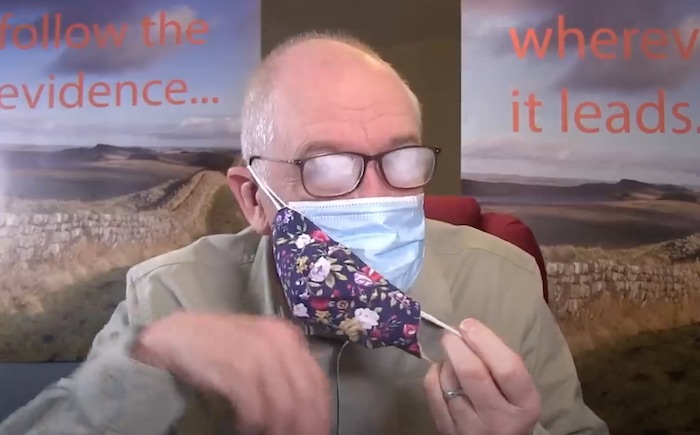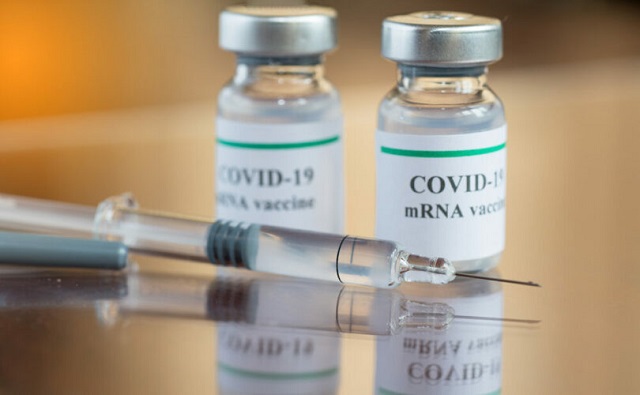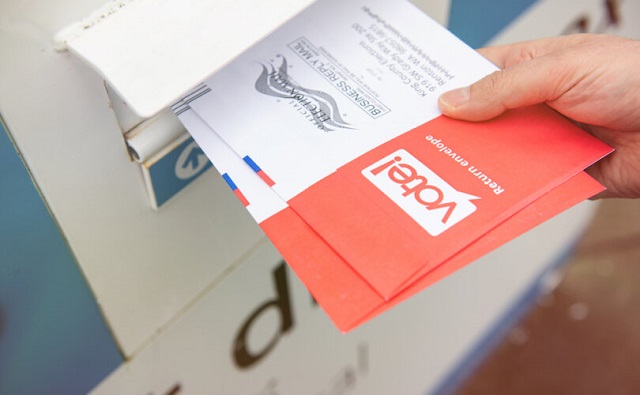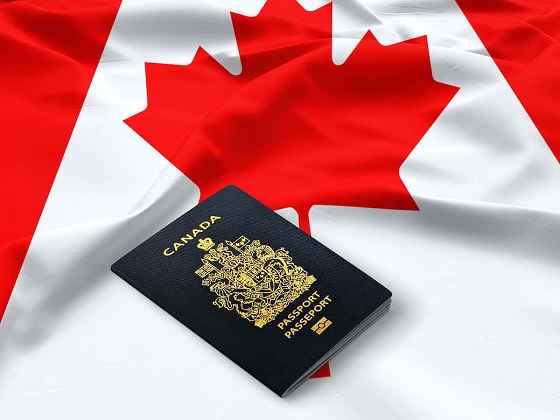COVID-19
“I want to apologize for advocating for the use of masks” – Spread of respiratory illnesses not slowed down by mask use

The study examines the effectiveness of masks and of following a hand hygiene program in reducing the likelihood of acquiring respiratory virus infections such as COVID-19.
British Health Researcher Dr. John Campbell shares the disappointing results in this presentation:
From Dr. John Campbell
From the Cochrane Library
What did we do?
We searched for randomised controlled studies that looked at physical measures to stop people acquiring a respiratory virus infection.
We were interested in how many people in the studies caught a respiratory virus infection, and whether the physical measures had any unwanted effects.
What did we find?
We identified 78 relevant studies. They took place in low‐, middle‐, and high‐income countries worldwide: in hospitals, schools, homes, offices, childcare centres, and communities during non‐epidemic influenza periods, the global H1N1 influenza pandemic in 2009, epidemic influenza seasons up to 2016, and during the COVID‐19 pandemic. We identified five ongoing, unpublished studies; two of them evaluate masks in COVID‐19. Five trials were funded by government and pharmaceutical companies, and nine trials were funded by pharmaceutical companies.
We assessed the effects of:
· medical or surgical masks;
· N95/P2 respirators (close‐fitting masks that filter the air breathed in, more commonly used by healthcare workers than the general public); and
· hand hygiene (hand‐washing and using hand sanitiser).
We obtained the following results:
Medical or surgical masks
Ten studies took place in the community, and two studies in healthcare workers. Compared with wearing no mask in the community studies only, wearing a mask may make little to no difference in how many people caught a flu‐like illness/COVID‐like illness (9 studies; 276,917 people); and probably makes little or no difference in how many people have flu/COVID confirmed by a laboratory test (6 studies; 13,919 people). Unwanted effects were rarely reported; discomfort was mentioned.
N95/P2 respirators
Four studies were in healthcare workers, and one small study was in the community. Compared with wearing medical or surgical masks, wearing N95/P2 respirators probably makes little to no difference in how many people have confirmed flu (5 studies; 8407 people); and may make little to no difference in how many people catch a flu‐like illness (5 studies; 8407 people), or respiratory illness (3 studies; 7799 people). Unwanted effects were not well‐reported; discomfort was mentioned.
Hand hygiene
Following a hand hygiene programme may reduce the number of people who catch a respiratory or flu‐like illness, or have confirmed flu, compared with people not following such a programme (19 studies; 71,210 people), although this effect was not confirmed as statistically significant reduction when ILI and laboratory‐confirmed ILI were analysed separately. Few studies measured unwanted effects; skin irritation in people using hand sanitiser was mentioned.
Dr. John Campbells presentation notes with links:
RCTs did not show a clear reduction in respiratory viral infection with the use of medical/surgical masks.
There were no clear differences between the use of medical/surgical masks compared with N95/P2 respirators in healthcare workers, when used in routine care to reduce respiratory viral infection.
Do physical measures such as hand-washing or wearing masks stop or slow down the spread of respiratory viruses?
https://www.cochranelibrary.com/cdsr/…
Evidence published up to October 2022.
Background Influenza (H1N1) caused by the H1N1pdm09 virus in 2009
Severe acute respiratory syndrome (SARS) in 2003 Coronavirus disease 2019 (COVID-19)
Update of a Cochrane Review last published in 2020.
We include results from studies from the current COVID-19 pandemic.
Main results 11 new RCTs and cluster-RCTs n = 610,872
Bringing the total number of RCTs to 78
Medical/surgical masks compared to no masks
Wearing masks in the community probably makes little or no difference to the outcome of influenza‐like illness
wearing a mask may make little to no difference in how many people caught a flu-like illness/COVID-like illness
Risk ratio (RR) 0.95, (0.84 to 1.09) 9 trials, n = 276,917 participants
Moderate-certainty evidence.
Wearing masks in the community probably makes little or no difference to the outcome of laboratory-confirmed influenza/SARS-CoV-2 RR 1.01, (CI 0.72 to 1.42)
6 trials, n = 13,919 Moderate-certainty evidence
Harms were rarely measured and poorly reported (very low-certainty evidence).
N95/P2 respirators compared to medical/surgical masks
We pooled trials comparing N95/P2 respirators with medical/surgical masks
We are very uncertain on the effects of N95/P2 respirators compared with medical/surgical masks on the outcome of clinical respiratory illness
Compared with wearing medical or surgical masks, wearing N95/P2 respirators probably makes little to no difference in how many people have confirmed flu and may make little to no difference in how many people catch a flu-like illness, or respiratory illness.
Confirmed influenza RR 0.70, (0.45 to 1.10) N = 7,779 Very low-certainty evidence
Influenza like illness N95/P2 respirators compared with medical/surgical masks may be effective for ILI RR 0.82 N= 8,407 Low-certainty evidence
The use of a N95/P2 respirators compared to medical/surgical masks
Probably makes little or no difference for laboratory-confirmed influenza infection RR 1.10 N = 8,407 Moderate-certainty evidence
Restricting pooling to healthcare workers made no difference to the overall findings.
Harms were poorly measured and reported
Discomfort wearing medical/surgical masks or N95/P2 respirators was mentioned in several studies
Very low-certainty evidence
One new RCT Medical/surgical masks were non-inferior to N95 respirators N = 1,009 healthcare workers in four countries, providing direct care to COVID-19 patients.
COVID-19
Trudeau gov’t has paid out over $500k to employees denied COVID vaccine mandate exemptions

From LifeSiteNews
The Department of Health paid $177,991, the Department of Foreign affairs paid $88,223, the Correctional Service of Canada paid $65,694, and Statistics Canada paid $33,240
Federal managers have paid out over $500,000 in settlements to employees that were suspended under the Trudeau government’s COVID vaccine mandate.
According to information obtained April 24 by Blacklock’s Reporter, records have revealed that Canadian federal managers have paid a total of $509,746 in damages and compensation to employees who were denied vaccine mandate exemptions.
“What are the total expenditures on compensation, severance packages and settlements to employees who were impacted by the government’s requirement during the COVID-19 pandemic that federal public servants provide proof of vaccination?” Conservative MP Ted Falk had questioned.
According to the official numbers released by Blacklock’s, the Department of Health paid $177,991, the Department of Foreign affairs paid $88,223, the Correctional Service of Canada paid $65,694, and Statistics Canada paid $33,240.
The Department of National Defence further revealed that it compensated three employees with “damages under the Canadian Human Rights Act on grounds of discrimination based on religion.”
Beginning November 2021, Prime Minister Justin Trudeau’s government mandated that a total of 275,983 employees from the RCMP, military and main federal departments provide proof of vaccination as a condition of employment.
Those who failed to do so risked dismissal or suspension without pay. While there were provisions for medical and religious exemptions, these were rarely granted. According to internal information, at the time of the mandates 95 percent of employees had already received the COVID vaccine.
When the federal mandate was lifted in June 2022, 2,560 employees had been suspended without pay for refusing to show proof of vaccination.
Indeed, implementing the vaccine mandate for federal employees has proved costly for Canadian taxpayers as Trudeau budgeted $198 million to enforce the COVID jabs on federal employees.
Conservative MPs questioned why the cost of the mandate was so high and pressed for details as to what the funds were used for.
“Treasury Board officials told us it was for rapid testing purchases and distribution,” Conservative MP Kelly McCauley (Edmonton West) told the House of Commons in 2021.
“The Treasury Board website shows there are about 3,400 unvaccinated employees,” he added. “That works out to about $24,000 per employee for rapid testing.”
Additionally, the Trudeau government will likely have to pay out even more former employees due to ongoing lawsuits over the mandates.
In October, LifeSiteNews reported on how over 700 vaccine-free Canadians negatively affected by federal COVID jab dictates have banded together to file a multimillion-dollar class-action lawsuit against the Trudeau government.
Similarly, Canadian taxpayers have already paid over $6 million via Canada’s Vaccine Injury Program (VISP) to those injured by COVID injections, with some 2,000 claims remaining to be settled.
COVID-19
Pfizer reportedly withheld presence of cancer-linked DNA in COVID jabs from FDA, Health Canada

From LifeSiteNews
According to information released by the Epoch Times, Pfizer purposefully failed to advise drug regulators, including Health Canada, the U.S. FDA and the European Medicines Agency, that the cancer-linked SV40 DNA enhancer was present in their experimental COVID shot.
Pharmaceutical giant Pfizer reportedly “chose not to” inform Health Canada, the U.S. Food and Drug Administration and other regulatory agencies that the cancer-linked Polyomavirus Simian Virus 40 (SV40) DNA sequence was in their widely distributed COVID-19 vaccine.
According to information released April 23 by the Epoch Times, Pfizer purposefully failed to advise drug regulators, including Health Canada, the U.S. Food and Drugs Administration, and the European Medicines Agency, that SV40 was present in their experimental COVID shot.
“I understand that there have been internal discussions at CBER [Center for Biologics Evaluation and Research] regarding the presents [sic] of an SV40 enhancer/promoter sequence, noting that its presence is unrelated to the purpose of the Pfizer’s plasmid as a transcription template for their mRNA COVID-19 vaccine,” Dr. Dean Smith, a senior scientific evaluator in Health Canada’s Vaccine Quality Division, wrote in an email to a colleague at the FDA about SV40.
The August email was obtained by an access to information request by the Epoch Times.
“Pfizer has communicated to us recently, that they apparently chose not to mention this information to EMA, FDA or HC at the time of their initial or subsequent submissions,” he added.
Smith noted that Kevin McKernan, a microbiologist and former researcher and team leader for the MIT Human Genome project, and Dr. Phillip J. Buckhaults, who is a professor of cancer genomics as well as the director of the Cancer Genetics Lab at the University of South Carolina, had raised in a public manner earlier this year how SV40 was present in the jabs.
While Health Canada originally told Canadians it was unaware of the SV40 enhancer’s presence, the agency has since confirmed the presence of the monkey-linked DNA sequence known to cause cancer when it was used in old polio vaccines.
SV40 is used to enhance gene transcription when the shots are made. It has been linked to the spread of turbo cancers in those who have been exposed to the virus via contaminated injections.
According to a 2002 study published in the Lancet, there is evidence that links the older polio vaccines, which were filed with SV40 contaminants, to certain forms of cancer.
Polio vaccines from the late 1950s to the early 1960s were all contaminated with SV40, after it was discovered that the virus was present in the monkey kidney cells which vaccine makers used to create the shots.
The authors of the 2002 study claim that the SV40-contaminated polio vaccine may have caused up to half of the 55,000 cases of non-Hodgkin’s lymphoma diagnosed each year.
SV40, according to the late vaccine developer Dr. Maurice Hilleman, was put in the polio vaccine and then put into wide circulation by Big Pharma company Merck inadvertently.
Unfortunately, this is not the first evidence that Pfizer hid the presence of SV40 from drug regulators.
According to Dr. Janci Lindsay, who works as the director of toxicology and molecular biology for Toxicology Support Services, Pfizer did not disclose the presence of SV40 “promoters” to both Health Canada and the U.S. Food and Drug Administration, as well as the European Medicines Agency.
She said, as reported in The Epoch Times, that the drug company “hid them.”
“So it’s not just the fact that they’re there, it’s the fact that they were purposefully hidden from the regulators,” she noted.
The news of Pfizer’s purposeful withholding of information comes as adverse effects from the first round of COVID shots have resulted in a growing number of Canadians who have filed for financial compensation over alleged injuries from the jabs, via Canada’s Vaccine Injury Program (VISP).
Thus far, some VISP has already paid over $6 million to those injured by COVID injections, with some 2,000 claims remaining to be settled.
Additionally, a recent study done by researchers with Canada-based Correlation Research in the Public Interest showed that 17 countries have found a “definite causal link” between peaks in all-cause mortality and the fast rollouts of the COVID shots as well as boosters.
-

 Automotive1 day ago
Automotive1 day agoThe EV ‘Bloodbath’ Arrives Early
-

 CBDC Central Bank Digital Currency18 hours ago
CBDC Central Bank Digital Currency18 hours agoA Fed-Controlled Digital Dollar Could Mean The End Of Freedom
-

 Business1 day ago
Business1 day agoHonda deal latest episode of corporate welfare in Ontario
-

 espionage1 day ago
espionage1 day agoOne in five mail-in voters admitted to committing voter fraud during 2020 election: Rasmussen poll
-

 Frontier Centre for Public Policy13 hours ago
Frontier Centre for Public Policy13 hours agoHow much do today’s immigrants help Canada?
-

 Brownstone Institute17 hours ago
Brownstone Institute17 hours agoThe Numbers Favour Our Side
